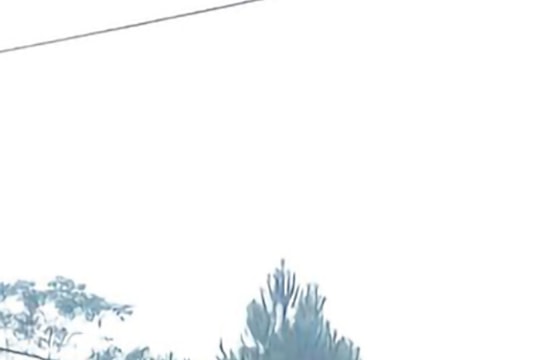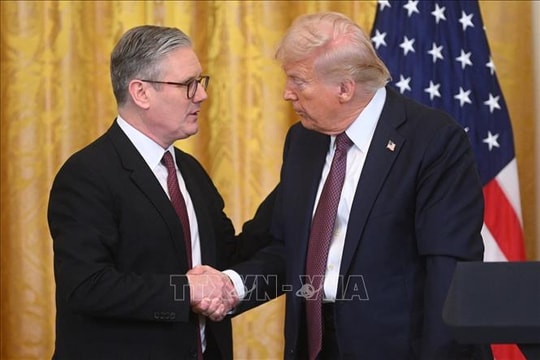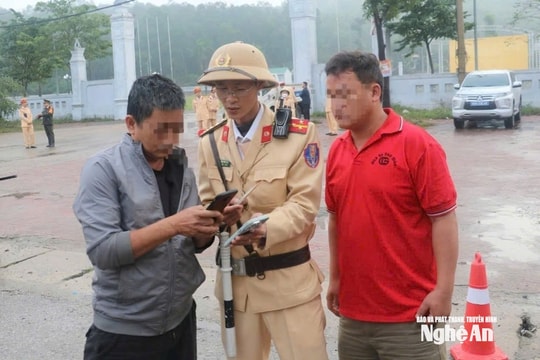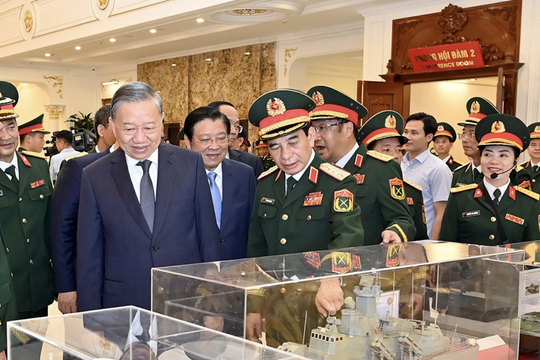Will a joint European army 'step on NATO's toes'?
(Baonghean) - After many years of incubation, the plan to establish a common defense force of the European Union (EU) has had a breakthrough. The signing of an agreement to enhance cooperation by 23 EU member states on November 12 could create a turning point for regional security. However, doubts remain.
The time is ripe
The Permanent Structured Cooperation (PESCO) agreement aims to boost EU defence cooperation and develop weapons systems. EU Foreign Affairs and Security Policy Chief Federica Mogherini called it “a new page in European defence cooperation”.
PESCO prioritizes the development of new military equipment for the EU, such as tanks and drones. Participating countries also pledged to “regularly increase their defense budgets,” dedicating 20% of defense spending to equipment purchases and 2% to research and technological development.
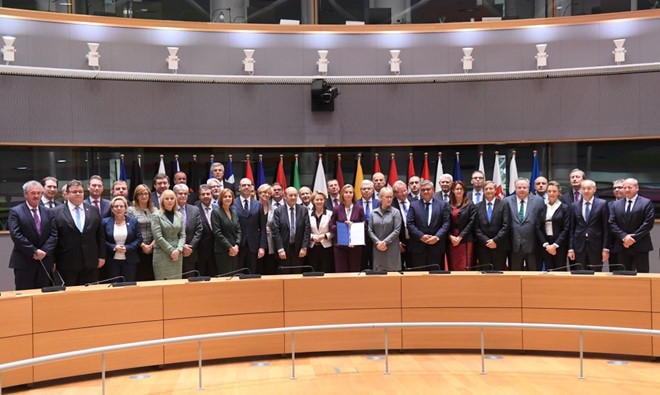 |
| The signing ceremony of the Permanent Structured Agreement on Defence was preliminarily signed in Brussels on November 13. Photo: Getty |
The agreement also obliges participating countries to provide “substantial support” to EU military missions. Participating countries will have to conduct annual reviews to ensure compliance with PESCO commitments or face leaving the agreement.
The desire to 'unify' the EU's defense force has been raised many times, but no concrete steps have been taken due to opposition from the UK. London has never wanted to participate in a European military force.
The opportunity came when the British people last year voted to leave the EU, while the administration of US President Donald Trump regularly criticized the EU on the issue of budget contributions to the North Atlantic Treaty Organization (NATO).
This further pushed the bloc to create its own military cooperation mechanism, more independent and autonomous in all aspects, and was clearly demonstrated after the 2016 US presidential election. At that time, German Defense Minister Ursula von der Leyen affirmed that the EU was clearly aware that the bloc would have to solve its own problems and therefore the need to reorganize in an independent direction had become urgent. Not all EU members accepted this idea.
Britain, which is in the process of negotiating its exit from the EU, along with Denmark, Ireland, Portugal and Malta, decided to stay out of the idea of cooperation with the bloc.
However, the agreement leaves the door open for countries that are not currently participating to apply to join later if they wish. Britain has pledged to support PESCO if necessary.
What would an 'EU army' do?
The 'unification' of European defence forces is not a pipe dream. It is rooted in the realities of the bloc. For 13 years now, the EU has been carrying out missions outside the union: helping train African armies, fighting piracy and, more recently, fighting migrant trafficking.
But some missions have run into trouble right from the start, largely due to a lack of available personnel from member states. France and Germany have therefore suggested creating a “reserve force” of trainers and advisers to enable rapid deployment of the proposed mission.
The two countries also called on the EU to invest more in research to serve the European defense industry. European Commission President Jean-Claude Juncker said the costs of compensating for 'lack of cooperation' in the defense sector in Europe could be between 20 billion and 100 billion euros per year.
Regarding combat forces, the two EU locomotives plan to upgrade the operations of battle groups of about 1,500 troops that are always on alert. This force is rotated from member states and can be mobilized within 15 days.
Such rapid response forces have never been activated in recent years due to a lack of political will. In some cases, the countries on alert are not the ones ready to intervene, especially in Africa.
The plan was essentially agreed except for the European Commission's proposal to set up a permanent European command centre.
Will NATO be 'trampled'?
The actual context of the Euro-Atlantic security space is changing, but whether it requires the establishment of a new mechanism of force mobilization is a question that is once again being asked of PESCO.
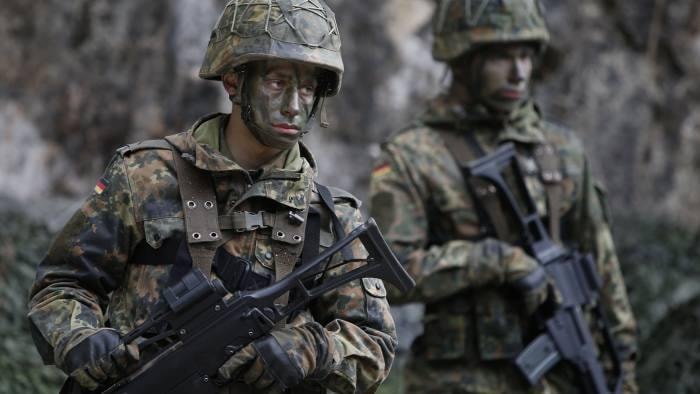 |
| German soldiers during a training exercise in the south of the country. Germany wants to maximize the number of EU countries participating in the defense cooperation agreement. Photo: Financial Times |
First of all, Europe is with the North Atlantic Treaty Organization (NATO). This is an alliance against the Soviet Union and the Warsaw Pact, so in principle, when the Soviet Union collapses and the Warsaw Pact is dissolved, NATO no longer has a reason to exist.
However, the US - as the 'leader' in NATO still wants to use this military institution to serve the interests of the US, so new functions of NATO are 'redesigned' to ensure its survival.
In the post-Cold War period, the US used NATO to arrange political chessboards with entities considered to be opposed to the US or wanting to be centrifugal from the US axis.
Thus, NATO's existence is a forced reality and in many cases becomes a weapon against many members of the EU.
Disagreements within NATO thus arose, especially as political changes in the United States forced NATO to engage in counter-terrorism and European members had to increase their 'participation costs' as demanded by the United States.
Thus, the undercurrent within the alliance has turned into a tidal wave between the allies. However, it would be naive to think that NATO will soon end its role or that the EU will 'let go' of its alliance with its American ally because it still needs the US on many issues.
The scenario of a 'stepping foot' between the EU and NATO defense forces may have been considered, but no one fully understands what the solution would be. And how loose the connection between the EU and the US will be when the difference in priorities becomes clear. That is the issue that the EU needs to determine soon in the near future./.
Phan Tung
| RELATED NEWS |
|---|

